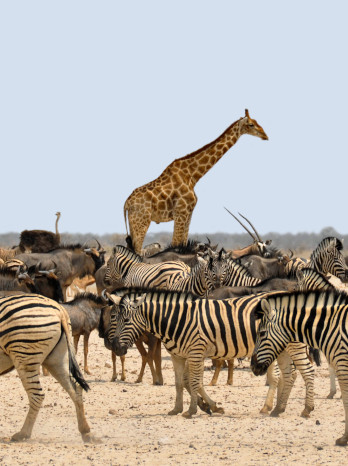Namibia
READ MORENamibia is a scorching hot country situated on the South-West coast of Africa. Well-known for its sandy red dunes and wildlife. Namibia’s variety of salt pans attract wild game like zebras, antelope and giraffes. It’s also known for its significant cheetah population. Namibia has become a popular destination for tourists who like to experience wildlife in its natural habitat and who appreciate spectacular landscapes and culture.
Other
Information
CURRENCY
Namibia uses two currencies. Both the Namibian Dollar ($1=N$14. 81 – June 2019) and the South African Rand ($1 = R14. 64 – June 2018).
LANGUAGE AND POPULATION
English and German are Namibia’s official language and most widely spoken. Other languages include Afrikaans, Damara, and Oshiwambo.
Capital City
The capital city is Windhoek.
History
Namibia was discovered by Bartholomew Diaz in 1487. But because of its long stretch of desert along the coast, it wasn’t a popular destination for other Europeans. It became a German colony in 1884. During the first world war, Namibia becomes a British mandate administered by South Africa but it gained its independence in 1990.
SIZE
Even though Namibia is one of Africa’s largest countries, it is home to only 2.6 million people.
WEATHER
Average daily temperature in 30°C High and 17°C Low during the day, 17°C High and 7°C Low during the night. Temperatures can reach highs of 42°C. Very low chance of rainfall.
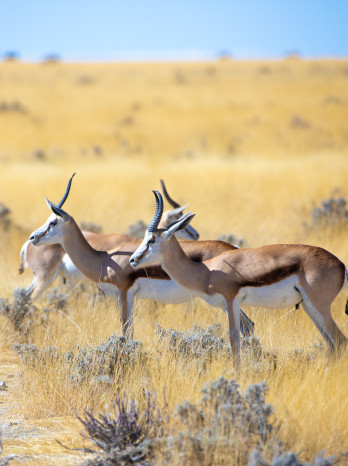
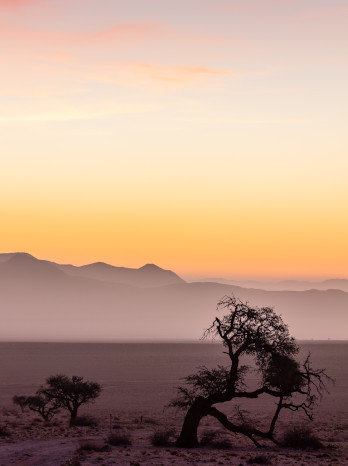
Highlights
01 Fishing on the Skeleton Coast
02 Sand surfing and exploring the massive dunes in the Namib desert
03 Swimming in the Orange River at Vioolsdrift
04 Driving up the coast through open plains of Sperrgebiet
05 Waterberg Plateau National Park
Top 5 Destinations
01 Etosha National Park
02 Walvis Bay
03 Swakopmund
04 Namib desert
05 Luderitz (German colonial town)
Unique Experience
• Unguided Fish River Canyon Hike. An 85km camp-and-hike trail that stretches from Hobos to Ai-Ais
• Hiking up the Brandberg Mountain (Damaraland) and spotting the white Lady rock painting
• Stargazing. The unpolluted air that rests over desert plains and national parks makes stars shine brighter than ever
• Sossusvlei’s salt pan after it has rained
Local Cuisines
Afval ( Offal/Giblets)
Offal is a delicacy that consists of a variety of meats, especially intestines, organs, and pluck. Cooked in big black pots over wooden fires.
Wild Game Meat and Pap
Different cuts of wild game meats (like Kudu, Waterbuck, Springbuck, and Wild Boar) are barbequed over an open fire. The tender meat is served with pap which is grounded maize that’s mixed with water to create a warm porridge-type dish.
Biltong and Droewors
A kind of curated dried meat, almost like the American Beef Jerky. Spiced with coriander and Worcester sauce. Droewors is a curated sausage that’s also dried and enjoyed.
Eisbein and Sauerkraut with beer
Eisbein is the meat on the shin of a pig. It’s served on the bone and smoked to perfection. It can be served with strong English mustard and Sauerkraut (thinly sliced fermented cabbage).
Type of Travel
Guided Tours
It’s highly recommended that you book tours with guides when you visit the best Namibia national parks. You need someone who can do spotting and show you major wildlife sites.
Car Rent
It’s advised that when you want to drive freely, that you rent a 4×4. Some roads, between cities and towns, aren’t made from tar. A 4×4 will help you drive through loose sand in the desert and unmaintained roads.
Bus Travel
Long bus rides can get extremely uncomfortable. Even though buses are less expensive than flying, the endless desert roads can become unbearingly hot regardless of an onboard air conditioner. When buses break down, which is not an uncommon phenomenon, passengers have to wait hours for help.
Budget Travelling
Traveling on a budget can be easily done, as you can find cheap bungalows and bush hostels. Some budget accommodation doesn’t always have electricity or warm running water.
Least Favorite
The scorching heat can be overwhelming to tourists who aren’t used to warm weather.
Long drives between towns and villages.
Planning Your Trip
Time allocation and itinerary suggestion
A recommended stay of 1-night in Windhoek before making your way to the western coast – 360km to Swakopmund. Drive south towards Walvisbay where you can stay 3-4 nights – embark on a day tour to the dunes of the Namib desert.
Continue your drive up the Skeleton Coast with layovers at Torra bay (optional detour to the Brandberg). A 450km bus ride or 4×4 drive will take you from Torra bay to the Etosha National Park – recommended a stay of 4 nights. A 420km ride back to Windhoek to catch your flight.
Budget
On average, you’ll spend $10 per person at a campsite, $16-20 for a budget meal, $50-60 for Bed and Breakfast. Mid-range safari lodges cost between $100-120 per night and for all-inclusive luxury safari lodges, you’ll pay $340-420 per person.
Guided all-inclusive safari tours of 8-11 days can cost anything from $2,700 – $4,730. Meals at inexpensive restaurants can cost $8-10 and at fancy restaurants $31-44. Buying a beer at a supermarket costs between $1-$1.50 and milk $1.
Getting Here
Most major airlines fly Via Johannesburg to Windhoek.
FROM UK
From London:
• Via Frankfurt and Johannesburg with Lufthansa Airways
• Via Zurich and Johannesburg with Swiss Air
• Via Johannesburg with Virgin Atlantic
Flight duration time varies between 16-24 hours.
FROM US
• Via Frankfurt and Johannesburg with Lufthansa Airways
• Via New York and Johannesburg with South African Airways
• Via Johannesburg with United Airlines
• Via Johannesburg with Swiss Air
Flight duration time varies between 18-22 hours.
FROM EUROPE
• Via Frankfurt and Johannesburg with Lufthansa Airways
• Via Addis Ababa Bole and Johannesburg with Ethiopian Airlines
• Via Johannesburg with Swiss Air
Flight duration time varies between 16-22 hours.
FROM ASIA
• Via Dubai and Johannesburg with Emirates
• Via Johannesburg with Qatar Airways
• Via Johannesburg with South African Airways
• Via Nairobi and Johannesburg with Kenya Airways
Fligh duration time varies between 18-28 hours.
Security and Safety
Namibia is one of the safest countries to travel to. Most locals respect the tourist’s belongings and personal space. Like in any other country, be cautious in major cities where there are signs up to remind you of being extra careful with belongings. Avoid a bad situation by not walking alone after dark in secluded areas.
Getting Around
Namibia doesn’t have a very reliable public transport system. Most public transports are found in major cities and tend to the needs of the locals.
Trans-Namib railways do connect major cities.
Most tourist attractions lie in areas where there isn’t any public transport, so renting a 4×4 or hiring a private tour guide is highly recommended.

When the fish gets rotten,
it all starts from the head
Related Articles
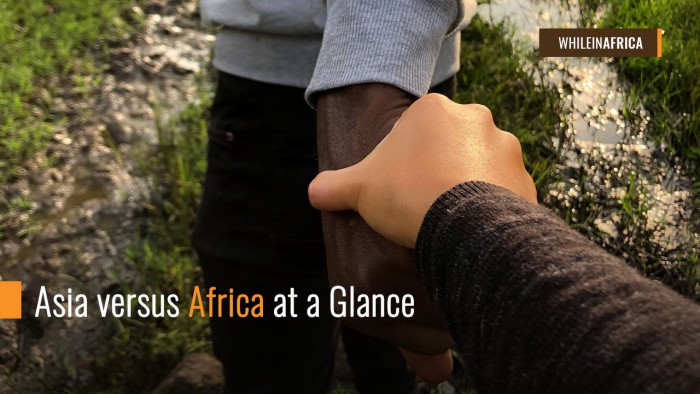
Asia versus Africa at a Glance
Geography Typical Weather Languages Spoken Cultures Cuisine Religion Africa as a Tourist Destination Top Destinations Internet/Wi-Fi Connectivity Travel Information Stay Safe Summary While Africa may be the oldest inhabited continent on Earth, it still lags behind the...
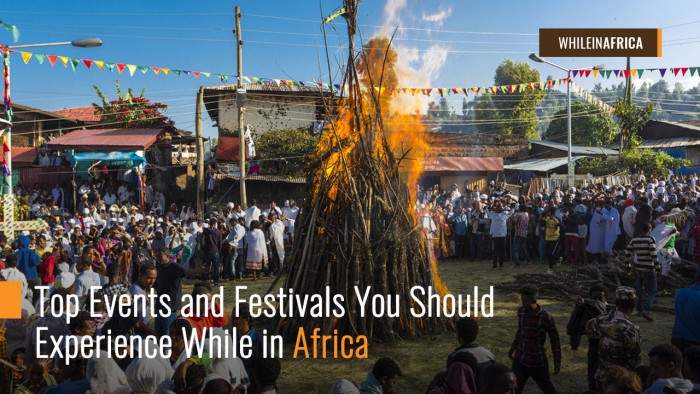
Top Events and Festivals You Should Experience While in Africa
If you’re planning a trip to Africa, why not center it around one of the many incredible festivals and events taking place across the continent? There are hundreds to choose from, so to help you narrow down your options, here are the top events and festivals you can...
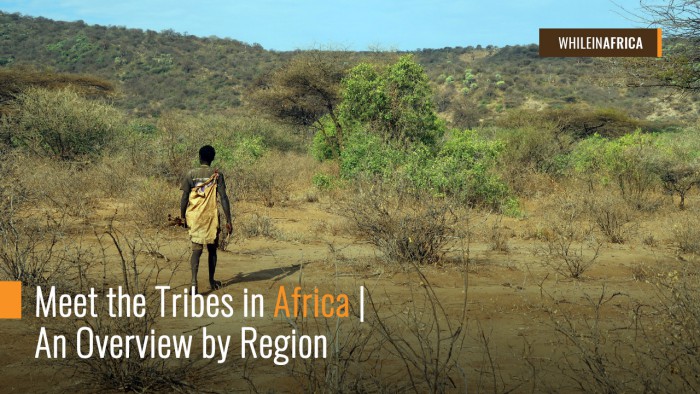
Meet the Tribes in Africa | An Overview by Region
Africa is known as a tribal continent even though it is not always the determining factor in a nation’s life. Colonial powers took little notice of tribes when they drew their national boundary lines. The result is that several tribes overlap into two or even three...
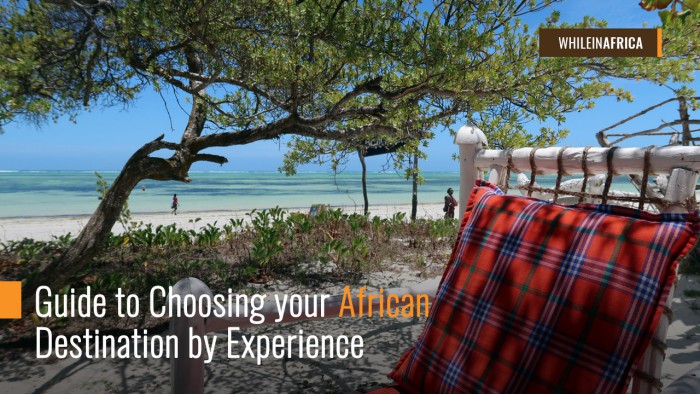
Guide to Choosing your African Destination by Experience
The only man I envy is the man who has not yet been to Africa – for he has so much to look forward to – Richard Mullin Wildlife and Safaris | Extreme Adventures | Deserts | Beach Life | Culture & History Business and Technology | Forest, Gorillas, and...
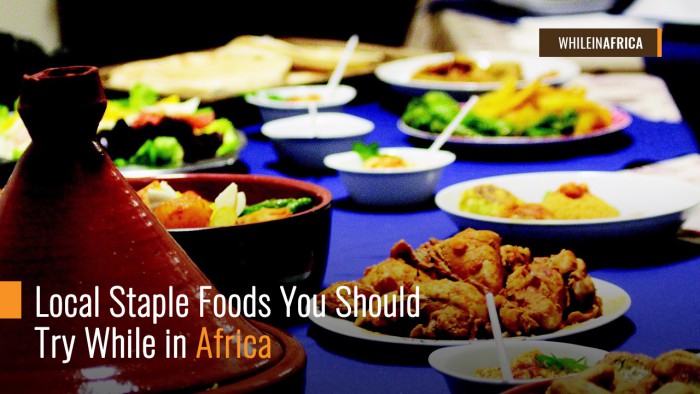
Local Staple Foods You Should Try While in Africa
African cuisine is as distinct as the many cultures that exist on the continent, and they not only reflect the immense riches of this diversity but are also full of spice and flavour. Each region poses its particularities and this makes African dishes unique from...
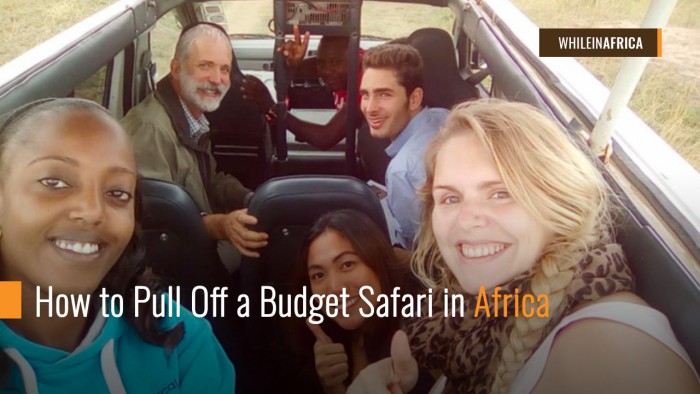
How to Pull Off a Budget Safari in Africa
For many travelers, the cost of embarking on a safari trip to Africa can seem pretty prohibitive. Many people dream of seeing the ‘big five’ in Tanzania, the Great Migration in Kenya, as well as the diverse species of mammals in Kruger and more, but end up staying put...
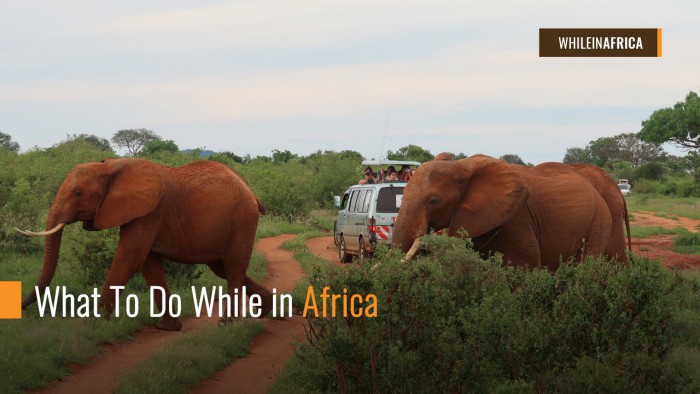
What To Do While in Africa
Africa is a continent of infinite variety. You will hardly scratch the surface on a single visit. Even today, there are remote regions where man has rarely ventured. When you first look at the activities the Continent can offer, you will find difficulty in deciding...
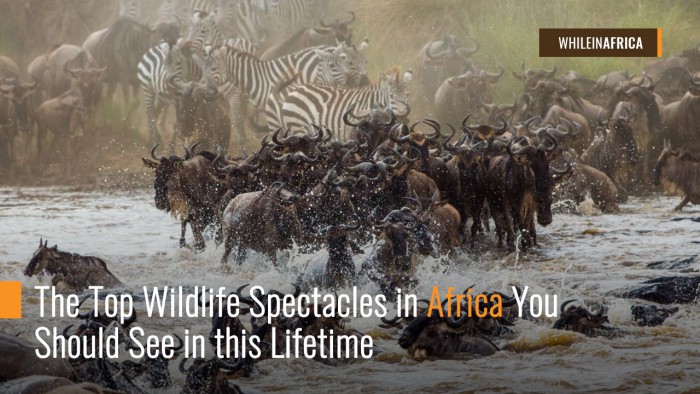
The Top Wildlife Spectacles in Africa You Should See in this Lifetime
The vast continent of Africa is home to the most incredible animal gatherings anywhere on the planet. You may already know about the unbelievable migration of one million wildebeest across Tanzania and Kenya. But there are many more examples across the continent that...
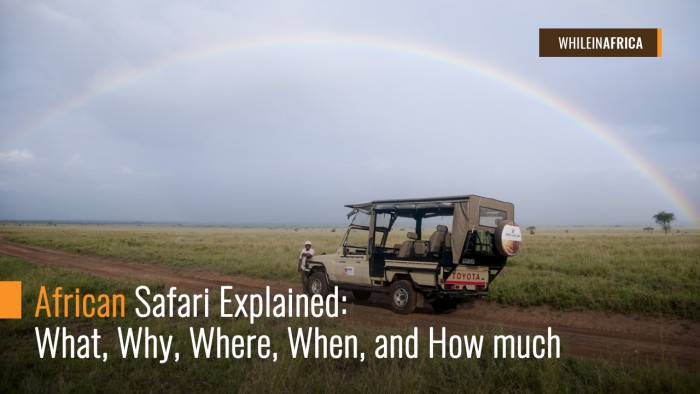
African Safari Explained: What, Why, Where, When, and How much
What Why Where How Much When How To Get There WHAT “African safari is an expedition or a trip, usually by tourists, to observe animals in their natural habitat.” These natural habitats can be national parks or game reserves such as Kruger national park in South...

